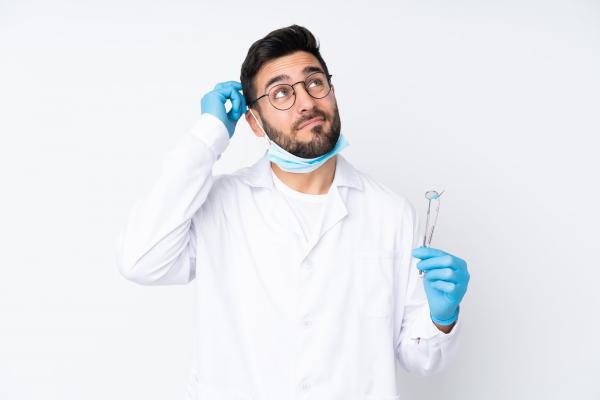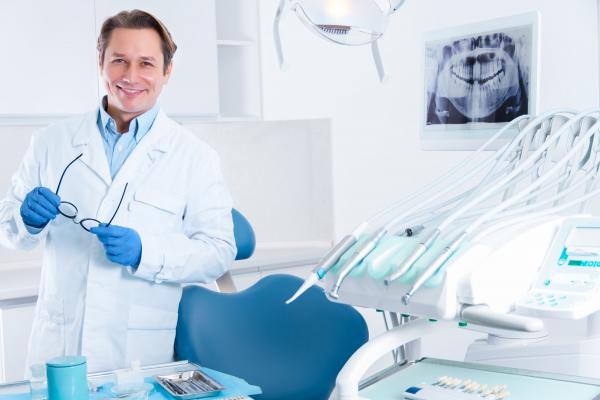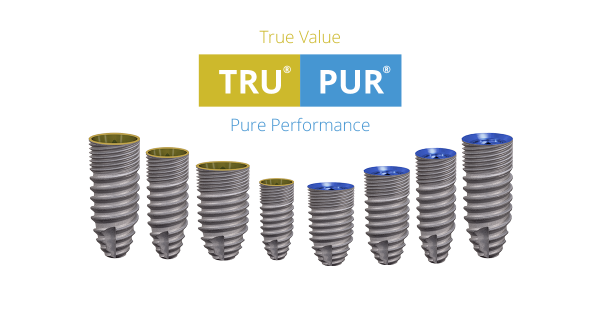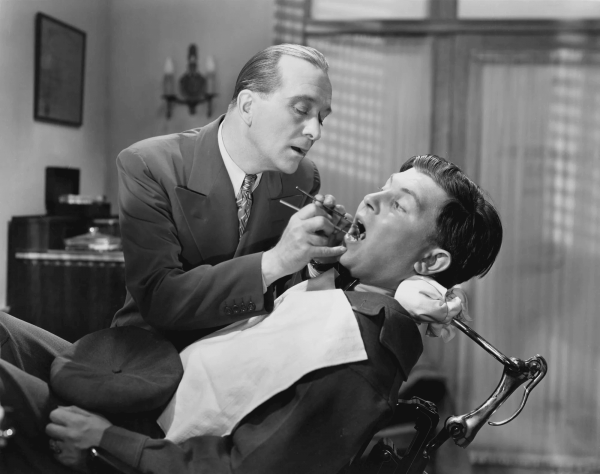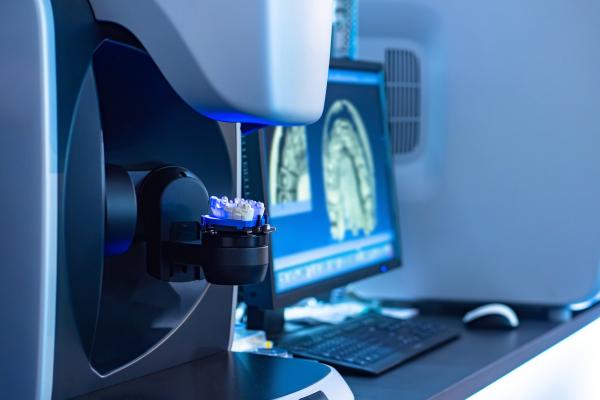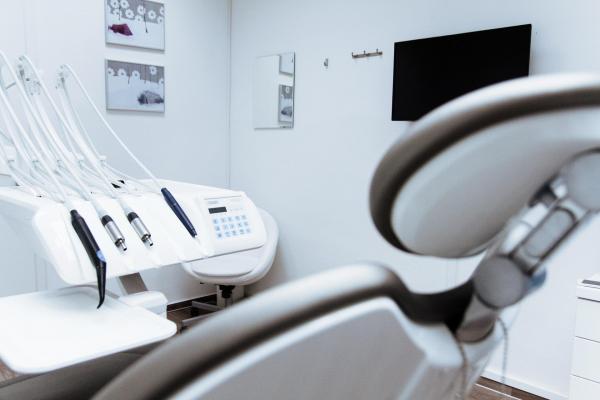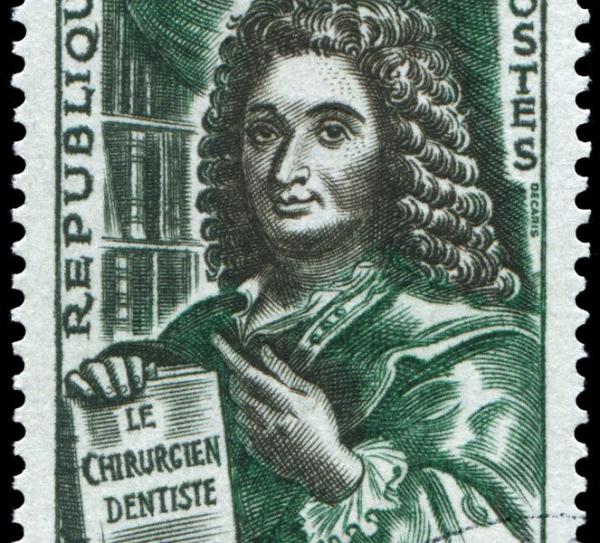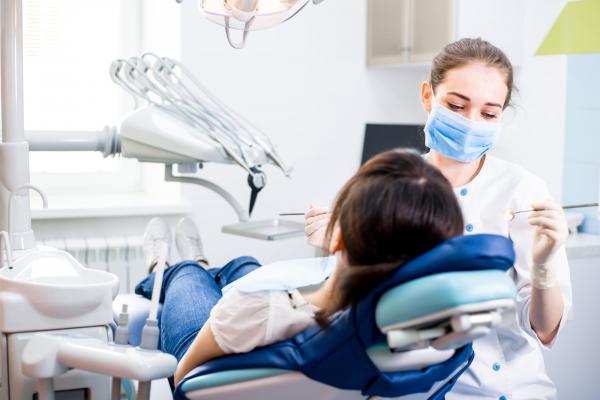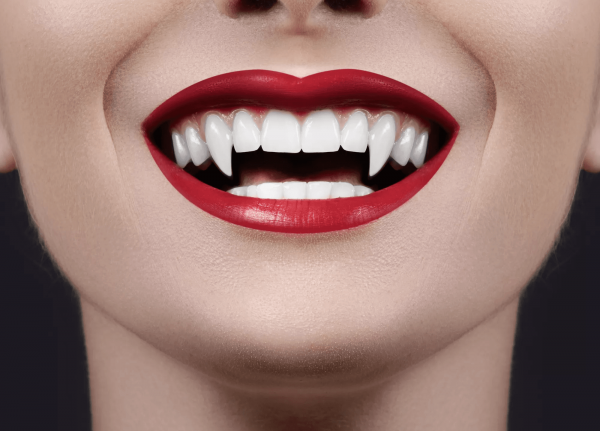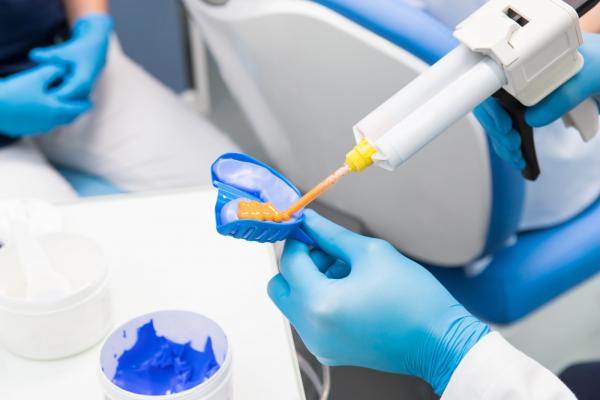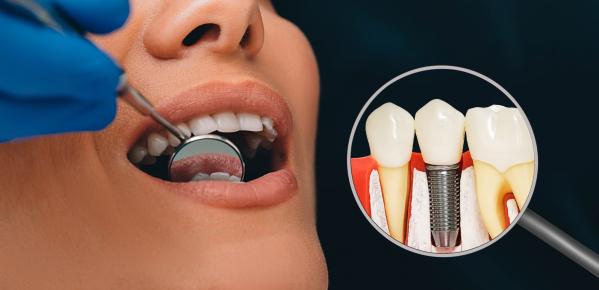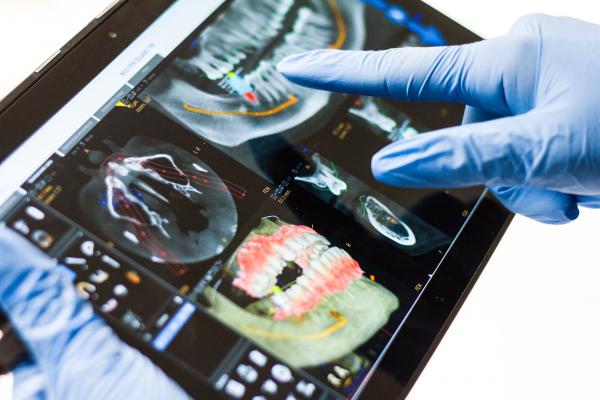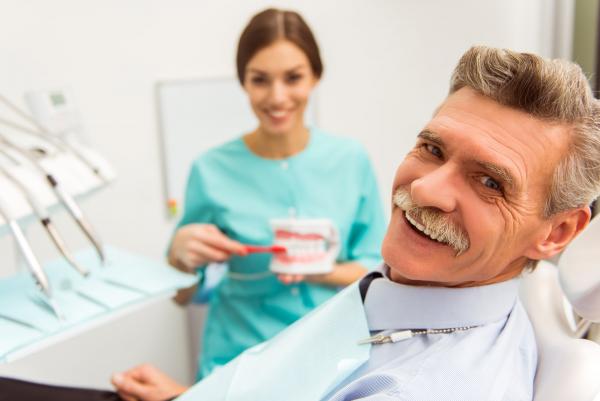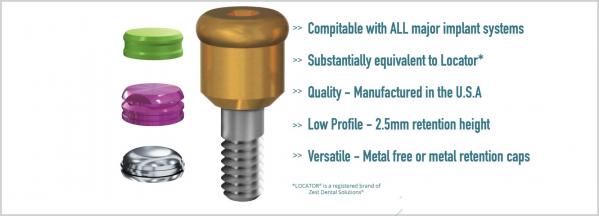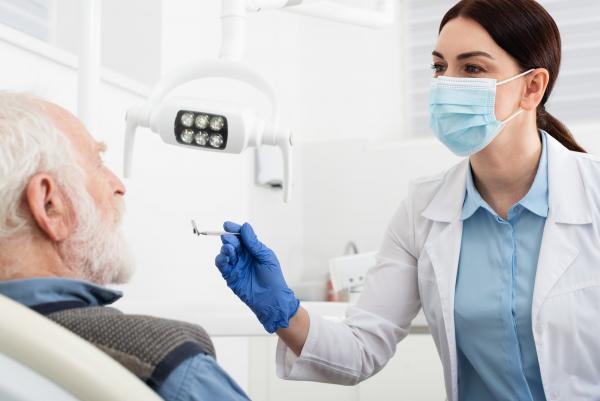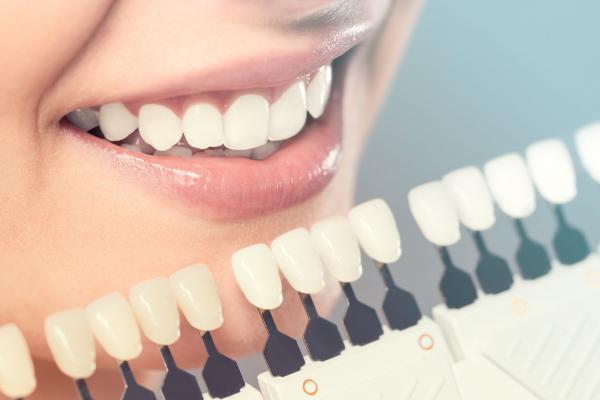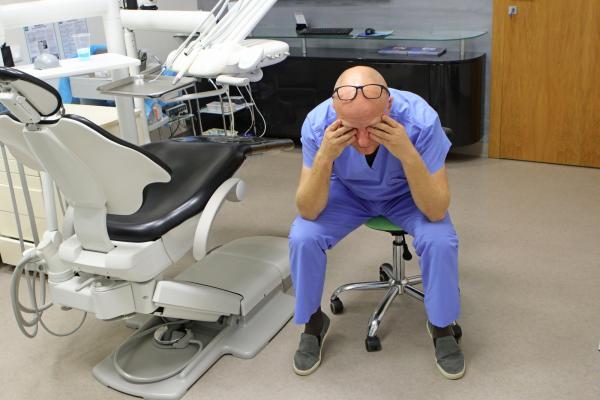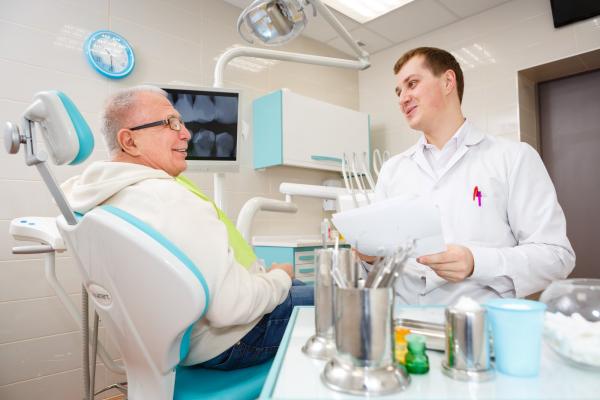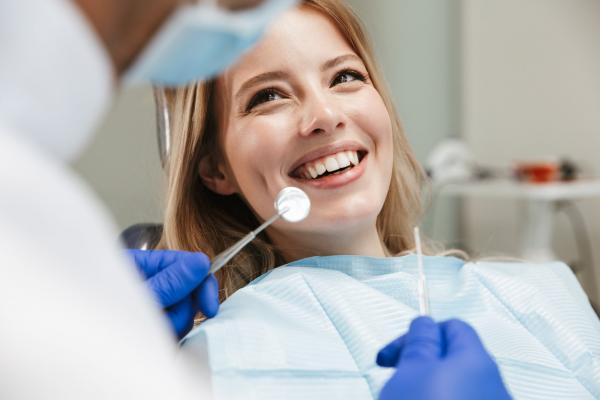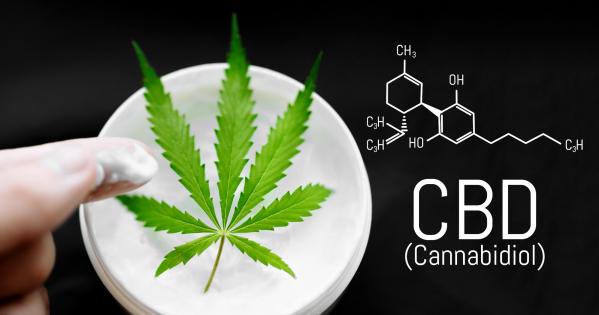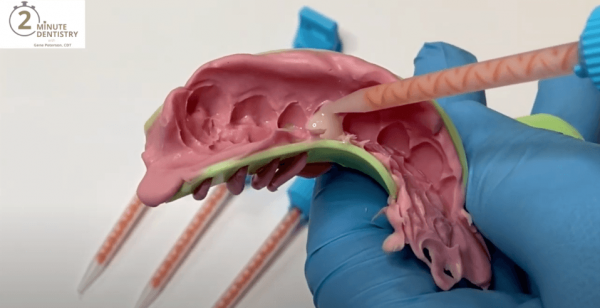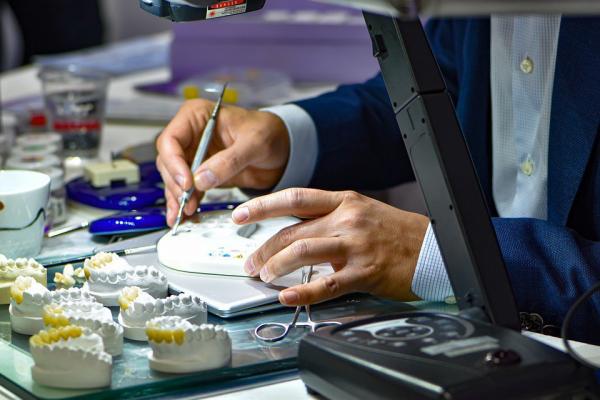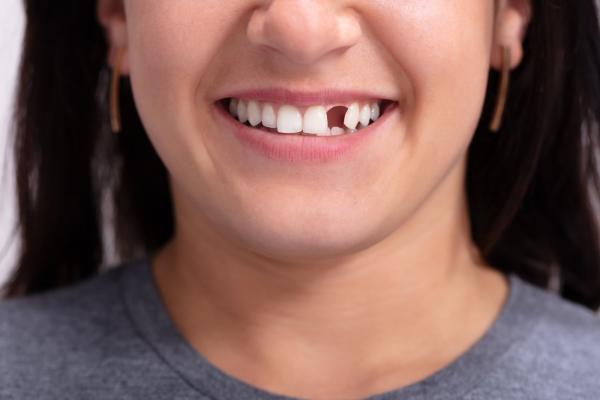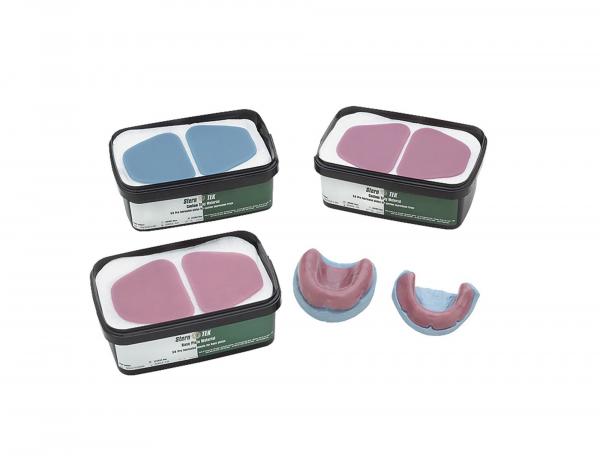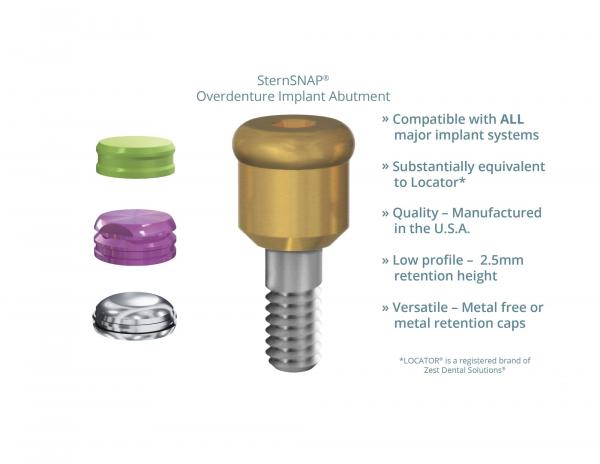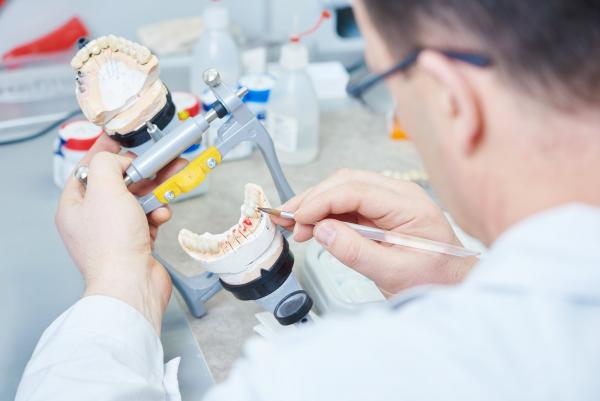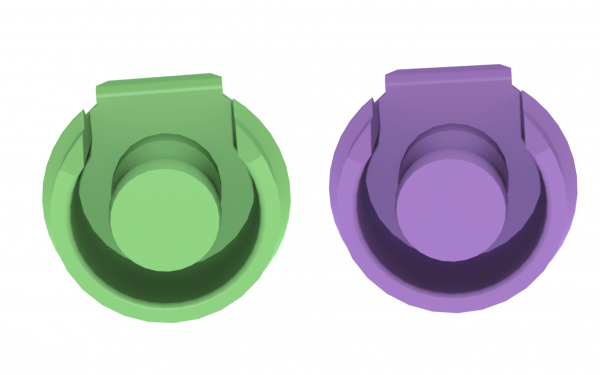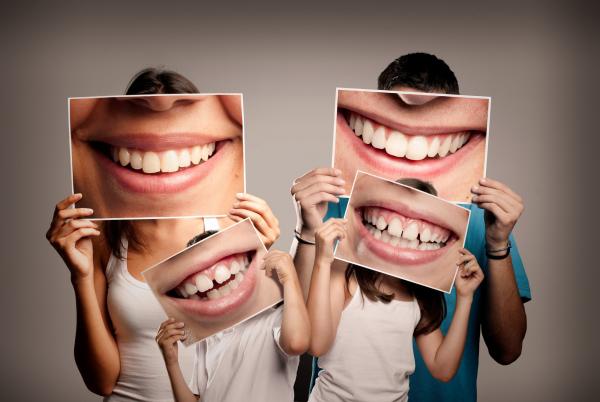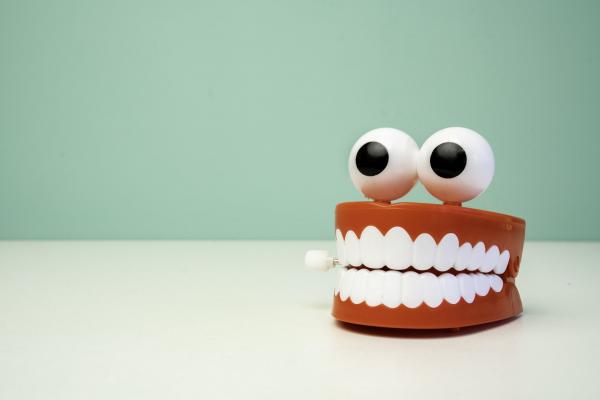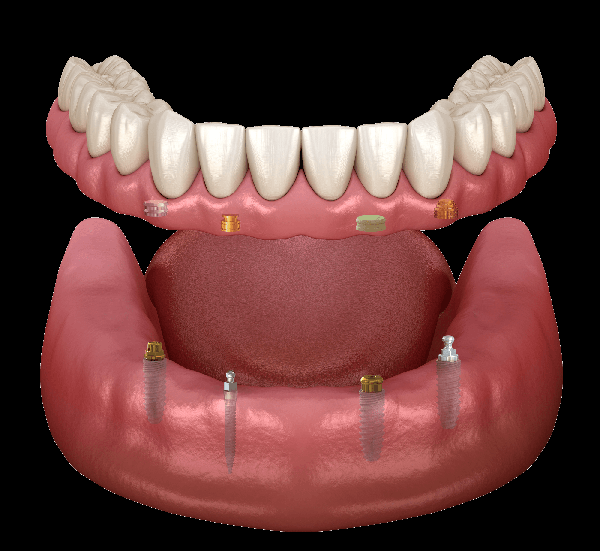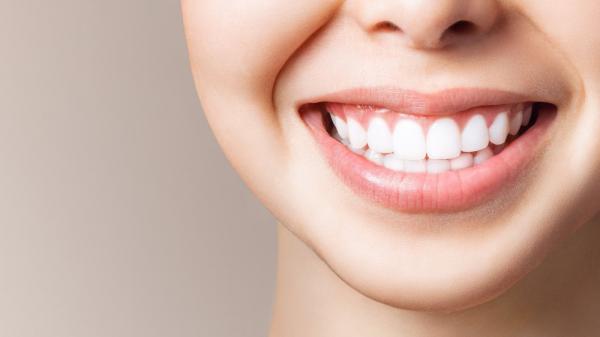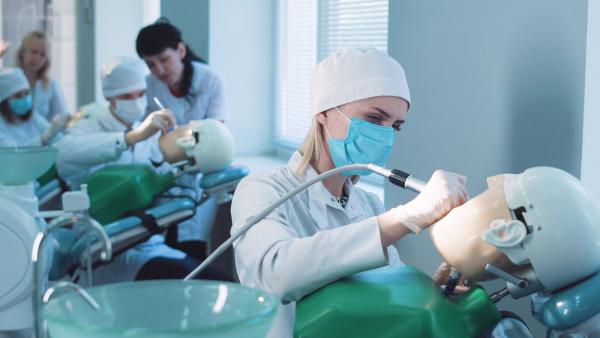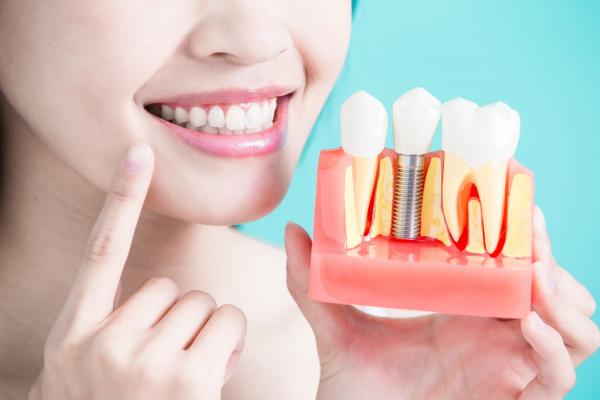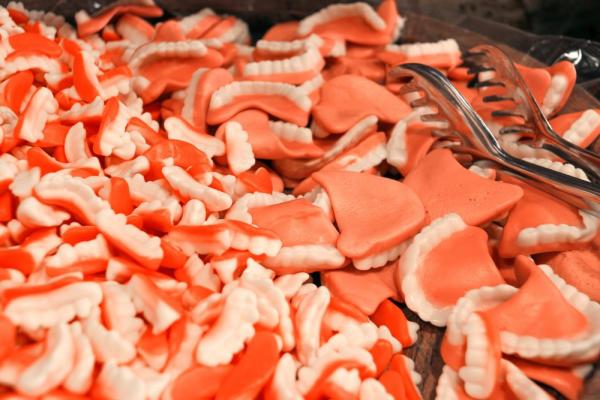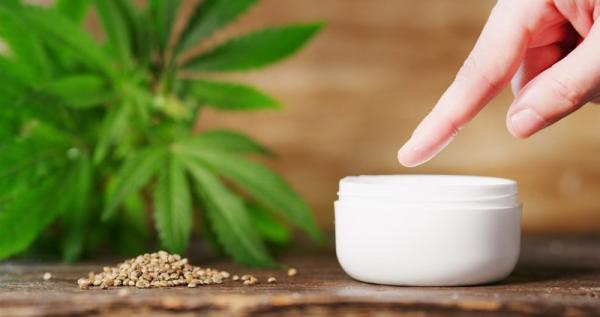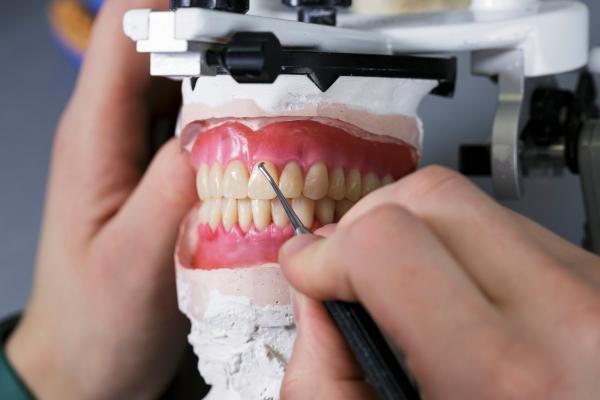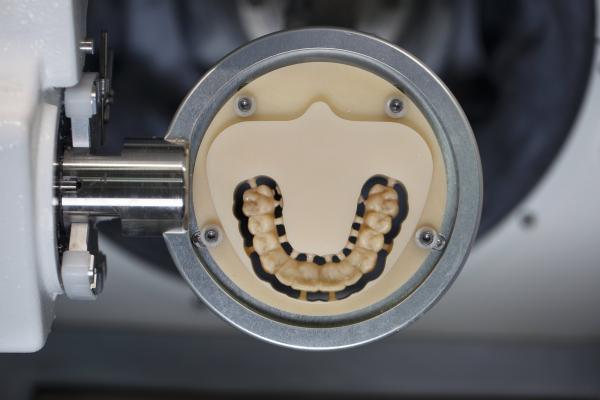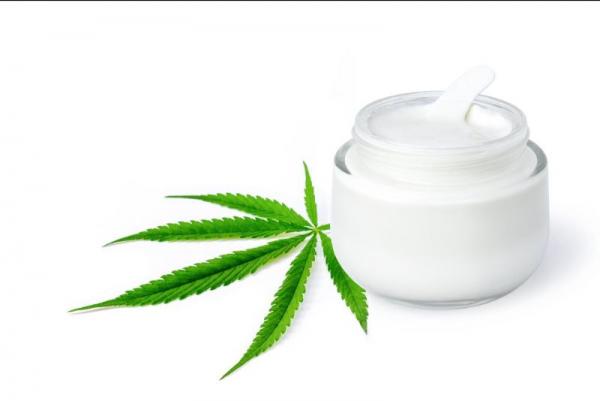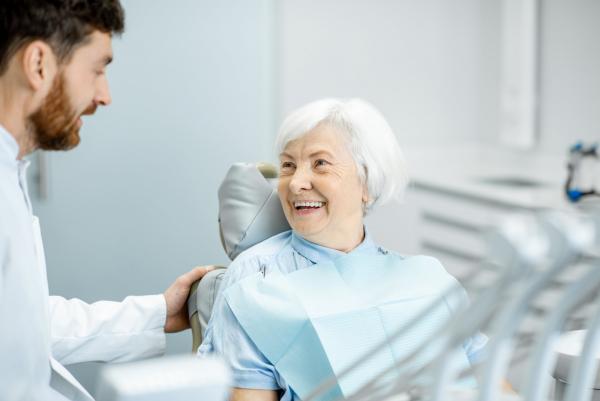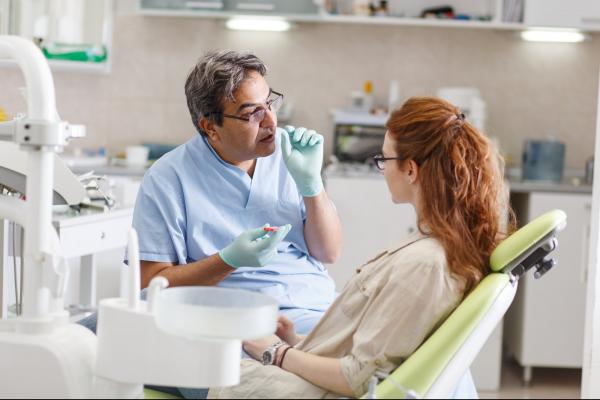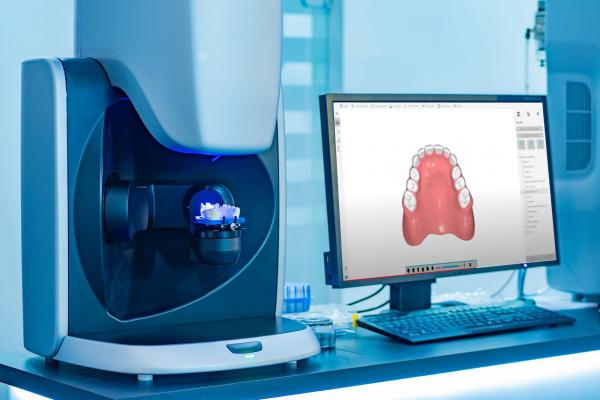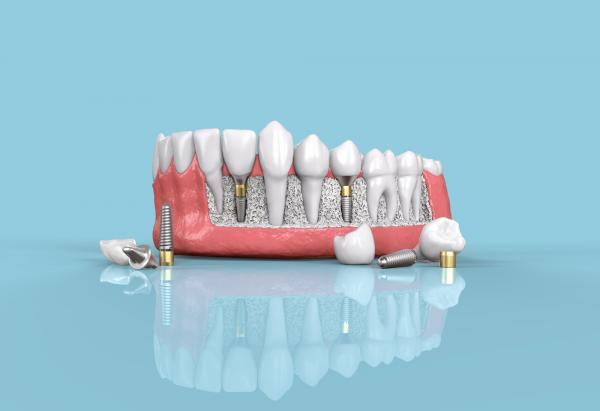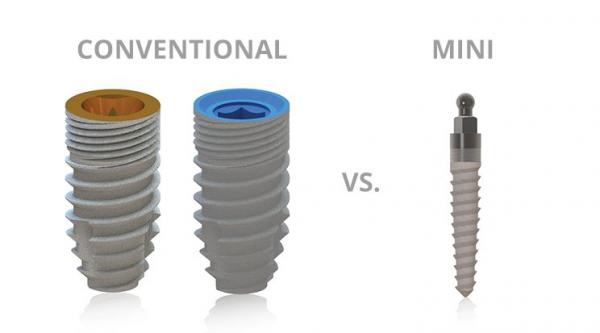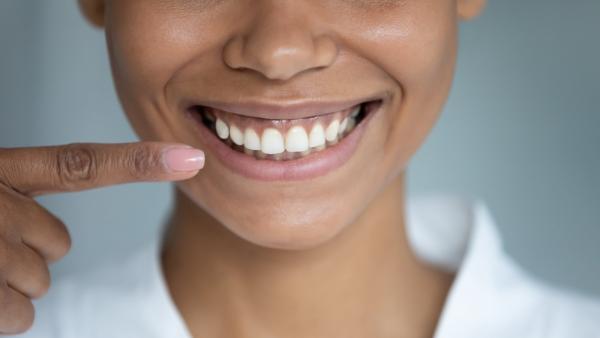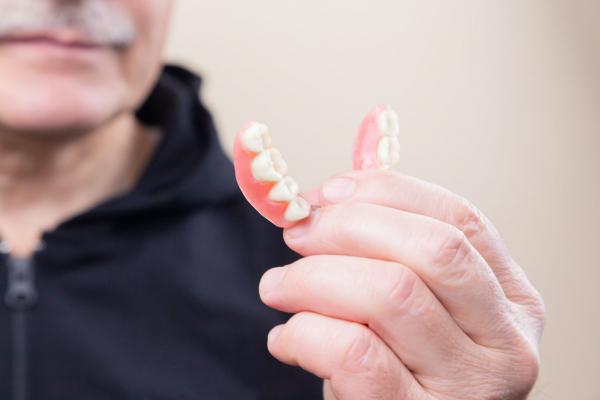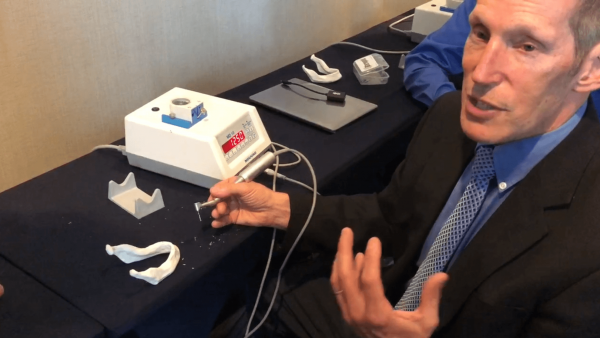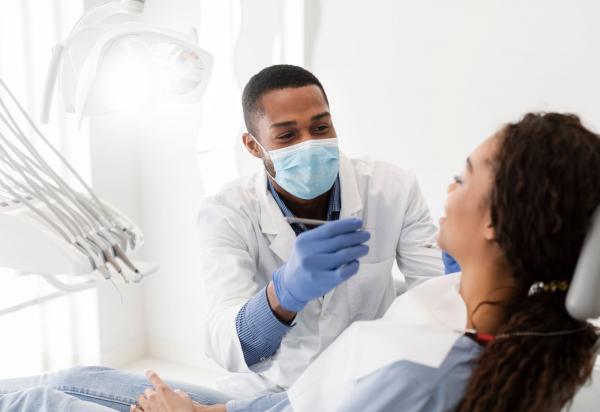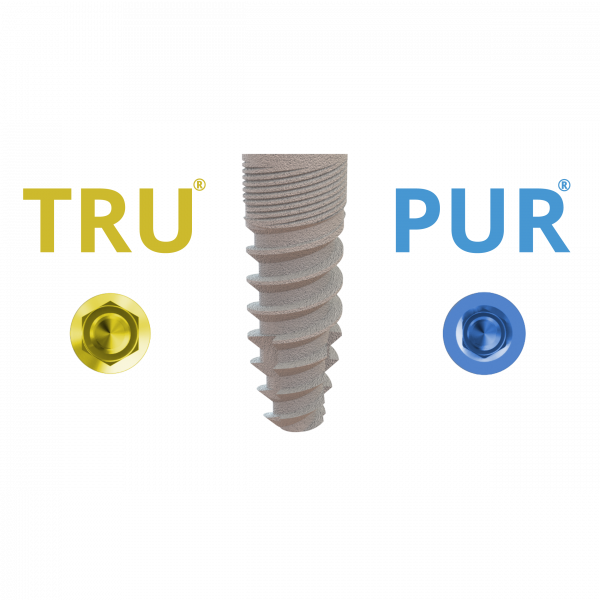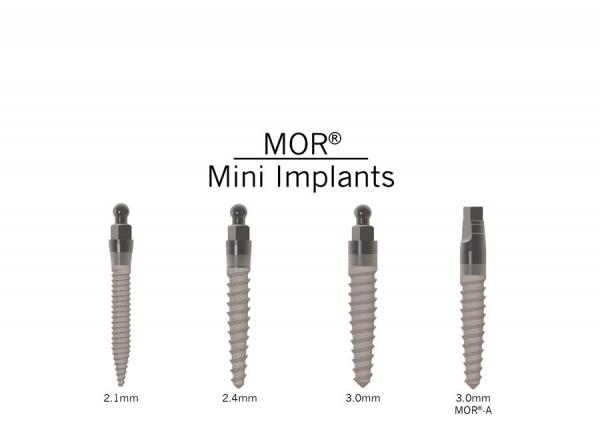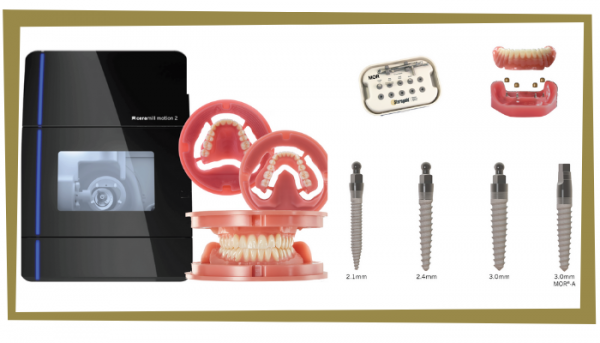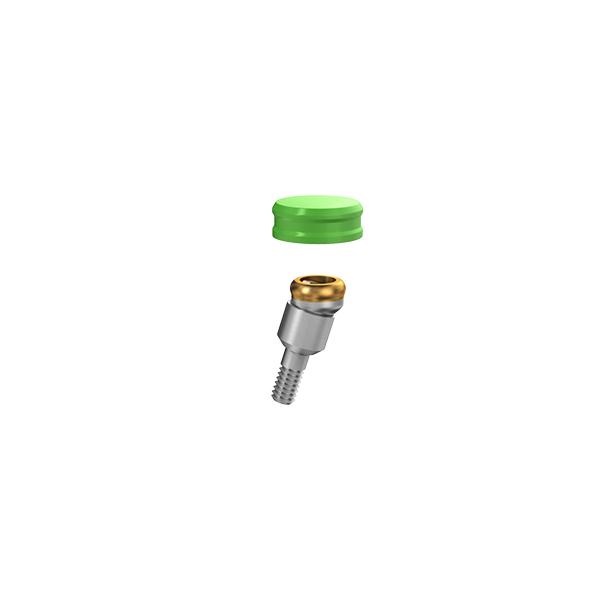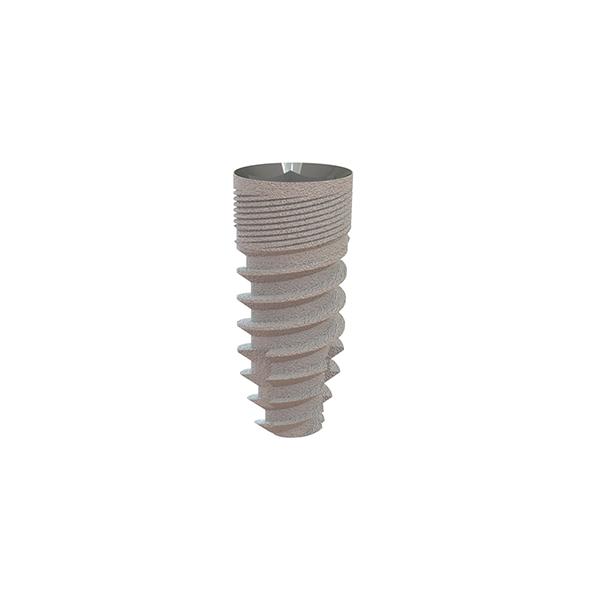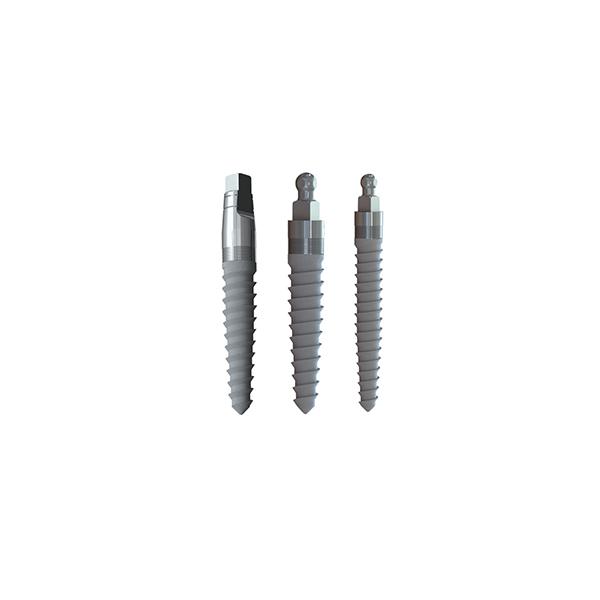-
Small Diameter Implants: To Add? Or Not To Add? Pathways To Practice
If you're on the fence about adding small diameter implants to your treatment options, let Sterngold light the pathway to practice! Read More -
Want to Grow Your Dental Business? Learn MOR® About Small Diameter Implants.
Growing your dental business requires learning about innovations like MOR® small diameter implants. Trust Sterngold for educational webinars and courses. Read More -
The Keys to Implant Success: Technology, Training, and Tenacity
An article titled "The Keys to Implant Success: Technology, Training, and Tenacity", in the latest issue... Read More -
Believe it or Not: 15 Curious Facts About Dentistry
The history of restorative dentistry and orthodontia is intriguing. These facts will give you a new appreciation for modern dental healthcare and the methods available to us today. Read More -
5 Ways to Ease Patient Anxiety Before Dental Implant Surgery
Many patients experience elevated levels of anxiety prior to dental implant surgery. With some compassion and intentionality, dentists can ease these fears by helping them regain control while eliminating triggering sensory inputs. Read More -
What Dentists Should Consider When Choosing a Dental Lab
The dental lab you partner with will have a direct impact on the quality of your patient care and the profitability of your practice. Do your research before you establish a relationship with a dental lab. Specifically, you’ll want the answers to these three essential questions about their procedures and methodologies. Read More -
Guided Dental Implant Surgery: Maximizing Treatment Outcomes Using a Digital Workflow
Current digital imaging technology and tools are revolutionizing guided dental implant surgery and optimizing implant treatment outcomes. Read More -
An Introduction to Guided Dental Implant Surgery
As advancements become more accessible, guided dental implant surgery is increasingly the best avenue. How can guided surgery benefit your practice? Read More -
Meet the Firsts: The Pioneers of Dentistry
From barbers to black pepper toothpaste. This is how the pioneers of dentistry contributed to breaking new ground to bring us to where we are today. Read More -
Notable Figures in Restorative Dentistry and Their Contributions
Notable figures in restorative dentistry throughout history paved the way for today's dental care from practices like Sterngold. Read More -
Resiment® Ready-Mix: An Easy-to-Use Self-Curing Dental Resin Cement
Get the best dental resin cement with Sterngold! Resiment® Ready-Mix® is a multipurpose, self-curing resin dental cement that will elevate your practice. Read More -
5 Bizarre Dental Traditions & Trends Around the Globe
Dentistry has been around for centuries. It’s a respected profession with a long and illustrious history. That said, it has also seen its fair share of bizarre—and spooky—dental trends. As the practice of repairing, restoring, and enhancing teeth evolved, it spawned a range of unique and colorful dental traditions and curiosities. Read More -
Lucy Hobbs Taylor: The First Licensed Female Dentist
Lucy Hobbs Taylor was a pioneer in the dental profession. Her determination to forge the way for women in restorative dentistry opened new doors in the industry and in education for women. Read More -
Evolution of the Dental Impression: From Sealing Wax to Intraoral Scanner
The evolution of dental impression materials and tools has resulted in improved restorative accuracy. For patients, this means better oral health and for dentists, it translates into significant time and money savings. Read More -
Implant Dentistry: The Practitioner's Guide
Join Dr. Grossi, a leading industry professional, for a comprehensive implant dentistry course to broaden your restorative dentistry offering and improve patient satisfaction. Read More -
US Dental Lab Technician Schools: How to Become a Dental Lab Technician
What to consider when choosing dental lab technician schools? Educational prerequisites, course content, certification and degrees, career path, and more. Read More -
Digital Dentistry Workflow: Patient to Practice to Lab and Back Again
New digital technology can enhance the workflow of restorative dentistry practices like never before. How can digitizing help you? Read More -
Digital Dentures Vs. Conventional Dentures—What’s Best for Your Patient?
Digital dentistry makes for a natural progression for dental professionals involved in developing restorative prostheses. It highlights the importance of simplicity and predictability in production workflows. Read More -
US Schools with Restorative Dentistry Programs
Restorative dentistry is constantly evolving to offer new or updated procedures. Prospects looking to continue their education, as dentists can specialize or expand their practice to offer the latest devices and techniques. Read More -
The Case for Dental Implants - Growing Your Dental Practice
Restorative dentistry, particularly dental implants, can benefit both dentists and patients. New tech boosts treatment flexibility and cost-effectiveness. Read More -
Ready? Set? Grow! Hit the Ground Running on Small Diameter Implants with MOR® Starter Kits
Patients and practictioners love them. Here's how Sterngold's mini dental implants can help grow your practice and boost your patient satisfaction. Read More -
The Stern Snap® Overdenture Abutment — A One-Piece Wonder
Overdenture abutment systems are essential for effective restorative dentistry. Stern Snap® offers a versatile, reliable, and affordable solution. Read More -
True Value. Pure Performance. The TRU® and PUR® Dental Implant Promise
Expand your practice with dental implant procedures. Get better results and increase patient satisfaction with TRU® and PUR® dental implants. Read More -
From Function to Form: The Aesthetic Influence on Restorative Dentistry
Aesthetically pleasing restorations, once a primary focus of cosmetic dentistry, are made even more possible today with advancements in dental technology. Read More -
Are You a Metal Head? The Evolution of Precious Metals in Dental Alloys
Insights into how dental alloys have evolved and are used in modern dentistry to bring patients the best and safest restorative dentistry solutions. Read More -
The Great Resignation and the Dental Industry: How the US Labor Shortage Is Affecting Dental Practices
The dental industry is facing a massive labor shortage. Read more about best practices for avoiding worker burnout and encouraging employee retention. Read More -
How to Help an Edentulous Patient Without Adequate Dental Insurance: Sterngold Total Smile
Dental coverage can prove a challenge for the senior or edentulous patient. Solutions from Sterngold Total Smile™ allows dentists to provide cost-savings. Read More -
Don’t Dismiss Your Dental Visit! It’s More Important Than You Think
A regular dental visit improves dental health and mental wellbeing, and prevents dental disease. But it can also help prevent other illnesses as well. Read More -
Wondering How to Grow a Dental Practice? Continuing Education Is Key!
Wondering how to grow a dental practice? Sterngold's continuing education courses have everything you need to grow your practice and make a difference. Read More -
The Future of Dental Implants: What Comes Next?
Technology like robot assisted implantation, nanodentistry, and stem cell technology promise an exciting future for dental implants. Find out what's new! Read More -
CBD Education: The Body’s Endocannabinoid System and the Benefits of CBD for Dental Use
Trust Sterngold for CBD education. Learn about the uses of cannabidiol, the benefits of CBD applications, and how CBD can be impactful at your practice. Read More -
The Gilded Age: A Brief History of Sterngold Dental and the Dental Industry
In this brief retrospective, we review our 125 year history in dental manufacturing as well as major developments across the dental industry as a whole. Read More -
Maximizing Use of InstaTemp® MAX: A Popular Crown & Bridge Material
Appealing, functional, and comfortable provisional restorations are essential to crown and bridge treatment plans. Use InstaTemp® MAX for best results. Read More -
Why a Dental Lab’s Technology Matters to Your Dental Practice
Find a dental lab that uses the latest technology to maximize your practice's workflows, increasing patient satisfaction and treatment effectiveness. Read More -
Lost Your Tooth? All Is Not Lost: Hope After Dental Extraction
If you have to have a tooth extracted, don't be afraid! Sometimes dental extraction is the best option to keep your teeth healthy and your smile beautiful. Read More -
Working with SternTek® Custom Tray and Baseplate Material
In restorative dentistry, the successful fabrication of both removable and fixed prostheses depends on quality custom tray and baseplate material. Read More -
The Tooth, The Whole Tooth, and Nothing But The Tooth: A Breakdown of Tooth Anatomy
The tooth is one of the important and complex parts of the body. You should understand teeth anatomy and prioritize their care to enjoy optimal dental health. Read More -
Dental Practices and Labs Have a New Reason to Smile More with Sterngold Total Smile™
Attleboro, MA, November 30, 2021– Sterngold Dental reveals a new reason for general dentists, oral... Read More -
Stabilizing Overdentures With the Stern Snap® System
The Stern SNAP® abutment system is an innovative, predictable, and economical solution for stabilizing overdentures and delivering patient statisfaction. Read More -
5 Questions to Ask Your Potential Dental Lab Partner
Choosing the right dental lab partner can affect your practice reputation and success. Ask these 5 questions before choosing a lab to partner with. Read More -
QuickLine®: The Solution for Your Soft Relining Denture Needs
Sterngold Dental's QuickLine™ soft solution for relining dentures is a durable, comfortable, and affordable product that will improve denture fit. Read More -
Unusual Dental Traditions and Trends From Around the Globe
Many consider teeth a reflection of a person's health and status. Dental traditions & trends all over the world show how different cultures approach teeth. Read More -
Need More Retention? Introducing the ERA® RV Green & Purple Male Attachments
The ERA® overdenture partial denture attachment system is the industry standard. New ERA® green and purple male attachments increase retention even more. Read More -
MOR® Small Diameter Implants: EZ PickUp®, Blockout Shims, and Latch Driver-Captive
Improve your MOR® Mini Implants dental system with EZ PickUp®, Blockout Shims, and Latch Driver-Captive. Trust Sterngold for your dental implant needs. Read More -
A Smile Is Worth a Thousand … Bucks? Fast Track Your Dental Practice with Sterngold Total Smile™
Many dental patients fear costs more than the dentists themselves. Sterngold Total Smile™ provides high-quality dental supplies and equipment at lower costs. Read More -
10 Weird Things People Used to Do With Their Teeth
What might seem like weird teeth to us is normal to others. Let Sterngold Dental take you on a journey through strange dental practices throughout history. Read More -
A Brief History of Dental Implants
Dental implants have been around as long as humans have been losing teeth. Make sure your dentist carries the latest dental implant products and services. Read More -
Investing in Dental CE Courses? Get MOR® Bang for Your Buck by Learning About Small Diameter Implants
Dental mini implants: a popular alternative to conventional implants. Sterngold offers MOR® mini implants and dental CE courses to help your practice grow. Read More -
Sterngold Dental: Your Go-To Source for Dental CE Courses
Sterngold Dental doesn't just supply top-notch dental products and equipment. Check out some upcoming dental CE courses offered by the dental supply leader. Read More -
Empowering Laboratories to Win More Business
Gordon CraigPresident & CEO of Sterngold Inside Dental TechnologyAugust 2021Volume 12, Issue 8 Offering the... Read More -
How Does Dental Implant Surgery Work?
Trying to decide if dental implant surgery is right for you? Considering the high success rate and durability of dental implants, it remains one of the most effective and affordable dental solutions for people suffering from tooth loss. Read More -
The World's Weirdest Dentures
From gold to ivory, denture materials throughout history run from colorful to wild. Let Sterngold Dental be your guide on a tour of the weirdest dentures. Read More -
Why Use CBD Dental Pain Medication?
Cannabidiol (CBD) presents a great alternative to traditional dental pain medication such as oral analgesics, powerful opioids, or steroidal medicine. Read More -
What Dental Labs Need for Optimal Digital Denture Production
Digital dentures are the next big thing in dentistry. Here's what dental labs for dentures need for digital denture production. Read More -
Digital Dentures: The Future of Denture Technology
Digital dentures are changing the way dentures are prepared. Here’s why this denture technology is going to shape the future of dentistry for the better. Read More -
5 Things You Should Know About CBD for Dental Discomfort Relief
Dentists shouldn't have limited choices in prescribing options. CBD in transdermal relief cream form can help patients get the dental pain relief they need. Read More -
Getting More for Your Practice and Patients with the MOR® Small Diameter Implant
Mini dental implants expand the versatility of treatments available. Improve patient expectations and overall treatment outcome with MOR Mini Implants. Read More -
Differences Between a Conventional Denture and an Implant Supported Overdenture
Overdenture is the less popular but more effective alternative to standard denture. Learn more about how it stacks up to most tooth replacement options. Read More -
Digital Denture Technology Breakdown
Digital denture technology has revolutionized dentistry. Here's everything you need to know about digital dentures and how they work. Read More -
The Ultimate Guide to Affordable Dental Solutions for Dental Implants
Provide your patients with affordable dental solutions. We break down everything you need to know about dental implants. Read More -
Avoid Dental Implant Failure: What Makes a Great Implant Candidate?
Dealing with tooth loss? Forget partial dentures and dental bridges as they offer temporary solutions... Read More -
What is the Difference Between Dental Implants and Mini Dental Implants?
Mini dental implants are an excellent choice for patients seeking a less invasive option. Learn more about how these implants differ from tradtional options. Read More -
The Complete Restorative Implant Solution with TRU® and PUR® Dental Implants
The TRU® conical hex and PUR® internal hex dental implants from Sterngold provide simple, reliable, and affordable solutions for your restorative surgical needs. Read More -
What Is An Overdenture and How Is It Supported?
Dental dentures have long been an indispensable part of dental treatment options to replace a single, or a set of missing teeth. However, restoring the smiles of patients with dentures had been a major challenge for dentistry. Read More -
Why Invest Your Time in Small Diameter Implant Courses
Dental professionals seeking to take their practice to the next level should consider diversifying their... Read More -
Are Small Diameter Dental Implants Worth the Practice Investment?
Providing a top-quality and affordable dental solution to the patient sometimes becomes challenging for dental professionals, especially if they fail to bring the comfort of advanced treatment options to their dental practices. Mini dental implants are less invasive, convenient, and affordable. Learn how you can improve the quality of care and practice growth with Sterngold Dental. Read More -
Dental Implants: When Value and Performance Matter Most
When it comes to value and performance, Sterngold Dental is one of the most reliable sources for restorative dentistry products. Learn why clinicians everywhere choose Sterngold. Read More -
Sterngold Welcomes Gene Peterson, CDT, to Its Leadership Team
Attleboro, MA- Sterngold Dental President and CEO, Gordon S. Craig III, announced the addition of... Read More -
Increased Practice Growth And Patient Satisfaction With The MOR® Small Diameter Dental Implant System
Pain, financial limitations, and time involved in procedure; these are top three reasons most patients... Read More -
Sterngold launches new website chat function
Attleboro, MA- Sterngold Dental, a global leader in alloys, attachments, implants, and restorative systems, has... Read More -
2019 Sterngold Grant Awarded
Attleboro, MA- Sterngold Dental has pledged over $20,000 to The Foundation For Dental Laboratory Technology... Read More -
Sterngold Offers New Stern SNAP® Drill & Tap Attachment
Attleboro, MA- Sterngold is pleased to announce that the Stern SNAP® product line is... Read More -
Small Diameter Implant And Digital Denture Solutions Provide Simple And Cost-Effective Solutions For DSOs
POSTED BY: GROUPDENTISTRYNOW MAY 2, 2019 It is predicted that nearly 37.9 million adults will have one... Read More -
Sterngold unveils innovative implant abutment selection guides
FOR IMMEDIATE RELEASE Attleboro, MA- Sterngold is excited to announce that its brand new, innovative... Read More -
Sterngold receives US patent for the SternSnap® Angled Attachment
Sterngold is delighted to announce that our SternSnap® Angled Attachment has been issued a... Read More -
Sterngold announces partnership with 3Shape
Sterngold is pleased to announce its TRU®, PUR® and MOR® Implant Systems are now... Read More -
The new PUR® 3.2mm Implant is now available
Sterngold, manufacturer of MOR® Mini Dental Implant, and industry leader in Small Diameter Implants, is... Read More -
Sterngold releases new additions for the MOR® Small Diameter Implant System
Sterngold announces new implant lengths and diameters within in its MOR® Small Diameter Dental Implant... Read More

